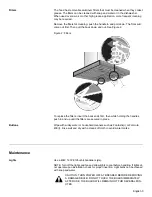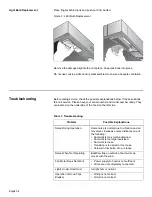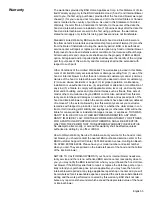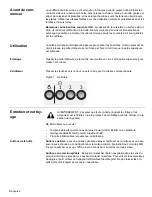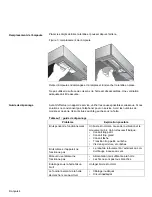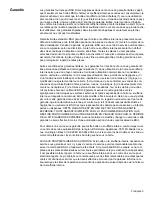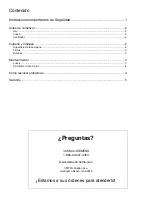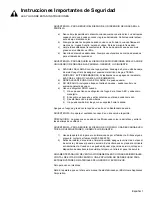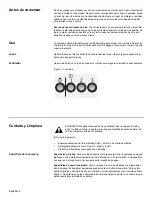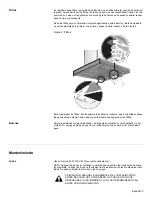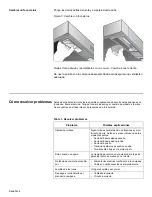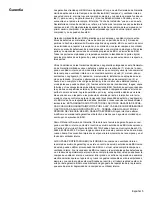
English 2
Before You Begin
The blower should be turned on for about five minutes before cooking in order to
establish air currents upward through the hood. Thus when heat, smoke, mois-
ture, grease and cooking odors are produced, they will be carried outside instead
of drifting into other rooms. Use the low speeds for normal use and the higher
speeds for strong odors or fumes.
A Note about Drafts:
Drafts across the range or cooktop will reduce the effective-
ness of the hood. Such drafts should be prevented when possible. The best job of
ventilation in the kitchen is done when the only air currents are those created by
the blower itself.
Use
The hood uses rocker switches to activate the controls. The switch is on when the
lower part of the button is depressed. The switch is off when the upper part of the
button is depressed.
Light
Press the lower section of the button to turn lights on. Press the upper part of the
button to turn the lights off.
Fan
Press the buttons up or down for the corresponding speed:
Figure 1: Controls
Care and Cleaning
WARNING: Be sure the entire hood (including the filters and light
bulbs) has cooled and grease has solidified before attempting to clean
any part of the appliance.
DO NOT use the following!
•
Abrasive Pads such as those made from steel wool SOS
, Brillo
or plastic
mesh.
•
Abrasive cleaners such as Comet
, Ajax
and Zud
.
•
Flammable products such as gasoline or kerosene.
Hood Surface
Painted Surfaces:
For general care, wipe the outside of the hood with sudsy
water or household cleaners such as Fantastic
or Formula 409
, rinse well and
dry with a clean soft cloth to avoid water marks.
Stainless Steel Surfaces:
Wipe and dry stainless steel in the same direction as
the grain. Avoid using too much pressure, which may mar the surface. To remove
finger prints and give added shine, use cleaners such as Stainless Steel Magic
.
Do not allow any cleaning compounds to remain in contact with stainless steel for
extended periods.
1
2
3





